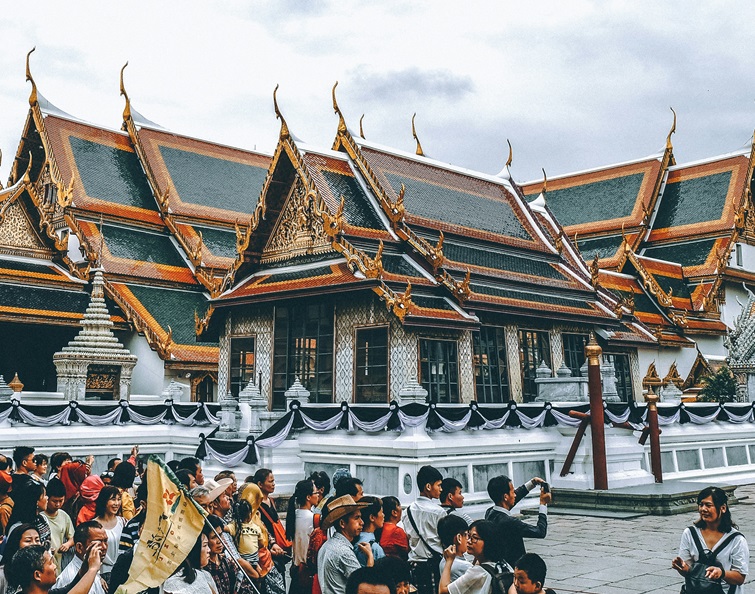Bangkok tourism still struggling: arrivals rebounding but not business
Behind the government's trumpeted figures are many short stays from neighbouring countries, with little economic impact. Despite the 17.5 million tourists recorded in the first six months (mostly Chinese and Indian), Thailand has dropped to 40th place in terms of turnover. Russians in Phuket instead of Americans and Europeans.
Bangkok (AsiaNews) - The Covid-19 emergency is now completely over, but Thai tourism is not taking off again. The authorities continue to show optimism, but the difficulties of a sector that was expected to soften the impact of the crisis are increasingly evident.
The fragility of the sector is intertwined with internal and external constraints: the flaunted numbers are strongly influenced by the parameters used (such as the distinction between tourist arrivals, arrivals in general, and the inclusion or non-inclusion of transits) and contrast with the real economic impact, which has seen the country drop to 40th place in the sector's international rankings this year. All this creates a condition of uncertainty and highlights the lack of a structural plan to relaunch the economy in which tourism could play an important role.
On the other hand, the country's image is not helped by the political instability due to the continuous tug-of-war between yesterday's ex-enemies and the military, which have joined forces only to keep reformist movements out of power. This is not an encouraging calling card for relations with North America and the European Union, from which, until a few years ago, Thailand was flooding with tourists.
In recent months, the authorities in charge have publicised new forms of visas, to allow extended stays for different categories of visitors, including for study or temporary work or long stays. In addition, just a few days ago, they extended visa-free entry up to 60 days, applying it now to 93 countries and territories, up from 57 previously.
But measures of this kind have so far done little to increase tourist flows; rather, they have served to incentivise special, sometimes even illegal, situations involving foreign nationals, to which the local media give ample coverage.
In the first six months of the year, official figures show 17.5 million tourist arrivals, a 35 per cent increase over last year, but still below pre-pandemic levels. The largest number of arrivals concerns Chinese and Indian citizens, to which are added other nationalities who have shorter stays and who benefit less from the local economy by using prepaid packages at home, such as Malaysians who spend holidays or weekends for leisure or shopping in the resorts immediately across the border between the two countries.
The Russian diaspora - which has its main base on the island of Phuket - has now surpassed that of any other European or Western country as an estimated size, with 1.4 million arrivals by 2023. Business organisations point out that the lower spending capacity of these travellers also hampers the investments needed to adapt facilities to a more differentiated and often more demanding tourist clientele than in the past.
12/08/2016 10:27
10/09/2020 12:23







.png)










